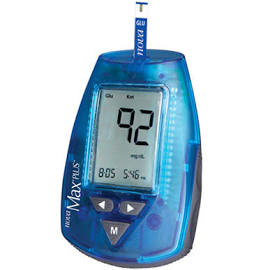A couple days after reading MBA's timely post "The Number One Tool for 2019" (regarding glucometers), and in particular the author's statement that EVERYBODY could benefit (including "people who just went to the doctor five minutes ago and were told their blood sugar is normal"), I broke out my old 'Nova Max Plus' glucose/ketone meter together with a batch of unused glucose test-strips. I'd last used the meter about 2 years ago after giving up on an experiment with the keto diet (despite strict adherence to macro ratios I could never achieve results claimed by non-PD adherents).
I had just this past week received a copy of lab results of a blood panel done for an upcoming dr's appointment and both my blood glucose and HbA1c were deemed "normal". With that in mind I was hoping to disprove the authors claim that, "your doctor doesn't order the right tests". Besides... lean, relatively fit guys don't get diabetes, right?
Unfortunately, after 3 days of testing both fasting blood sugar levels (upon waking/before meals) and the recommended "1hr after meals", I discovered that I am consistently deep into the pre-diabetic range. Now I'm a believer. In my search for practical remedies, I came upon this summary of another recent study further implicating insulin resistance in all that ails us:
“Insulin resistance (IR) is a precursor to type-2 diabetes (T2D). First suggested in the 1960s, a growing number of studies are finding links between Parkinson’s disease (PD) and T2D.
"This study suggests that nearly two thirds of non-diabetic people with PD may be insulin resistant, despite having normal blood sugar, and in some cases, despite being lean… Another important take-away (although not specifically addressed in the Hogg et al. (2018) study), is that there are an increasing number of studies suggesting that IR negatively impacts dopamine functioning in the brain [*IR is a likely PD 'facilitator']."
Further details on implications: parkinson.org/blog/science-...
